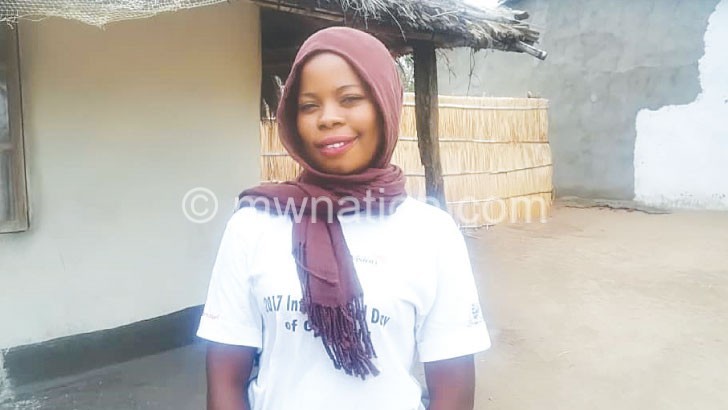A smile for school dropouts
A girls’ club in Chipalamawamba, a tiny village situated few yards from the western bank of Shire River in Traditional Authority (T/A) Mponda in Mangochi District, is making school dropouts smile.
After 47 girls from the village dropped out of school last year due to lack of fees, they decided to form a club in January. They called it Mthundu, after a huge gigantic tropical tree whose canopy forms a shade under which the weary can rest.

“And, indeed, to those of us who kissed school goodbye due to lack of fees have found refuge in Mthundu Club. In 2017 I saw my future crumble when I was forced to quit school in Form Two at Nasenga Community Day Secondary School [CDSS],” narrates 20-year-old Layie Chitenje.
This was after her father, whose source of income was fishing, had died. His death plunged the family into dire straits. With him, went away all hope of completing secondary education as the burden to provide for the family rested on the shoulders of her mother.
Chitenje had to lend a hand by doing piece-works. “But we would only get less than K5 000 in our endeavours, which would be spent on food and other home amenities.”
For a whole year, the family toiled to raise fees to no avail until mother and daughter just resigned to fate.
And she is not the only one out of school due to poverty. About 17 288 secondary school students quit school in 2017, a 2017 Ministry of Education Science and Technology (MoEST) report says.
But the report says10 184 were girls from which 3 000 left school due to lack of fees. Overall, fees accounted for 39 percent of dropouts among secondary school students.
While most initiatives are focusing on ending child marriages and containing teenage pregnancies, among others, to reverse dropouts, there is little for those without fees.
For Chitenje, however, a ray of hope shone in the night of despair in January this year.
“Some secondary school dropouts started a club to empower girls with various skills and I joined it,” she recalls.
At the club, Chitenje learnt to bake pancakes, sew sanitary pads and many more.
“The club lends money to those who want to do business individually. So, I borrowed K20 000 for pancake business. And I have saved enough for my fees. Next year, I’m back in school,” she says.
Mthundu Girls Club chairperson Mary Douglas says in March the girls solicited support from World Vision Malawi which is implementing a project on Adolescent Girls and Young Women (AGYW) in seven traditional authorities (T/As) in the district with funding from Global Fund through Action Aid.
“They came and taught us how to make cakes and sew pads by using locally available materials. And through selling these things, the club has helped 15 girls go back to school by paying their fees,” she says.
The proceedings from the club’s business help the members pay fees and individuals are also free to borrow money from the club to start own businesses.
“Before the club was born girls used to sleep with men to get money. But now they are able to make their own money; in so doing, avoiding contracting HIV and unwanted pregnancies,” she says.
However, Mthundu Club is not the only one empowering school dropouts in the district. Some 115 kilometres south west of Mangochi Boma, Chilipa Girls Club composing 40 members is also rescuing dropouts back to school.
The club’s chairperson Lines Humba says the club realises between K30 000 and K40 000 every month, selling sanitary pads and other commodities.
“Now every girl in this club has knowledge on small-scale businesses. Together we run the club’s business, which is changing lives. Right now, some girls are back in school, taking evening classes at Chilipa CDSS,” she explains.
One person happy with the social success of these girls defying the odds to go back to school is Group Village Head (GVH) Bamusi.
“Apart from being able to go back to school, the girls will not fall prey to men enticing them with money,” he asserts.
And World Vision AGYW project officer Clement Kolove says empowering adolescents and young women in Mangochi will not only reduce HIV, which is high in the district, but also solve dropout issues directly and otherwise.
“That is why we are using the clubs the girls established to impart skills and knowledge in them on how to make money through business activities; in this way, they can avoid behaviours that put them at risk to contracting HIV,” he says.
As Malawi is working towards implementing Sustainable Development Goal (SDG) number 4 on education with some girls elsewhere waiting for a miracle to be back in school, Chitenje can afford a broad smile with her breakthrough.





